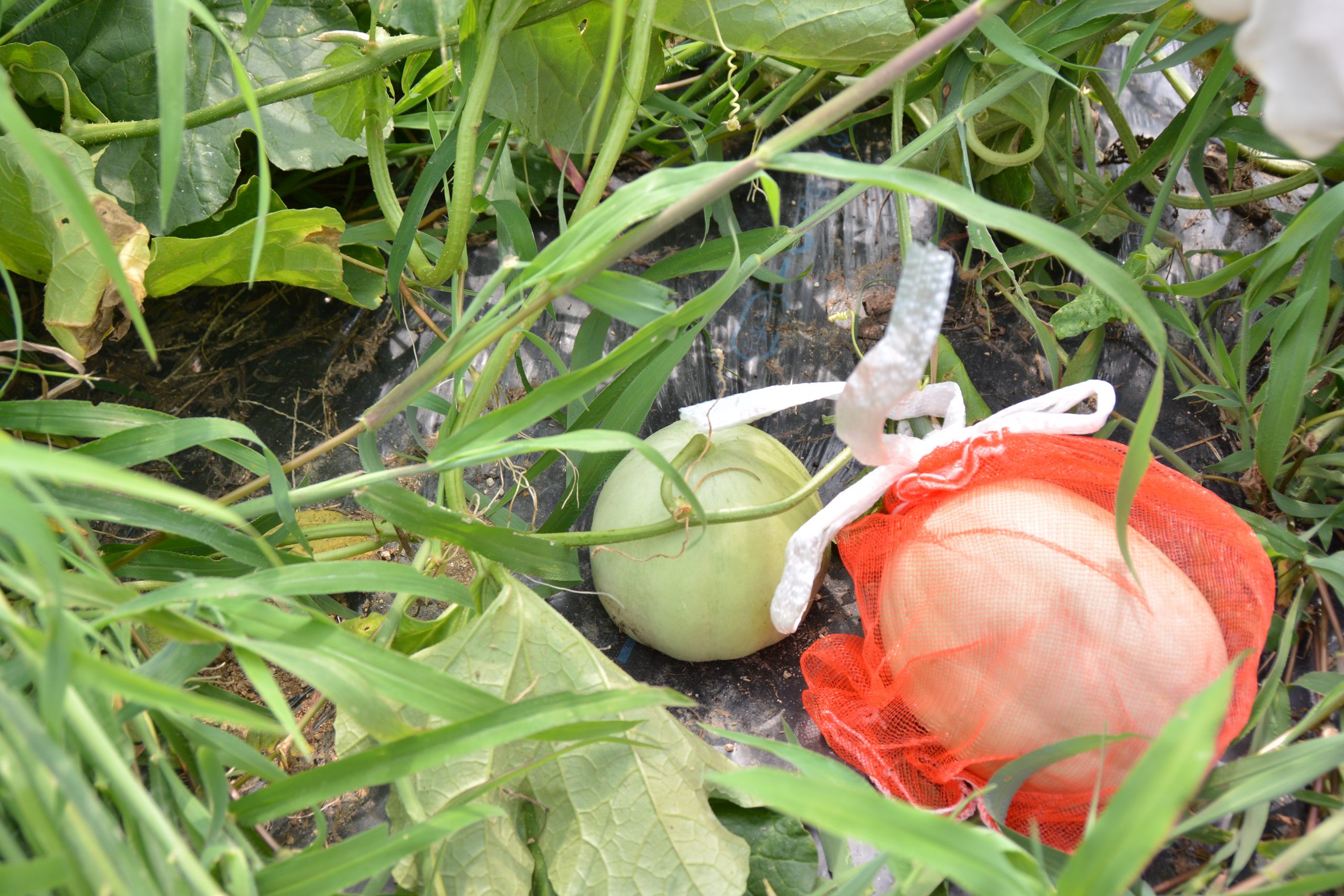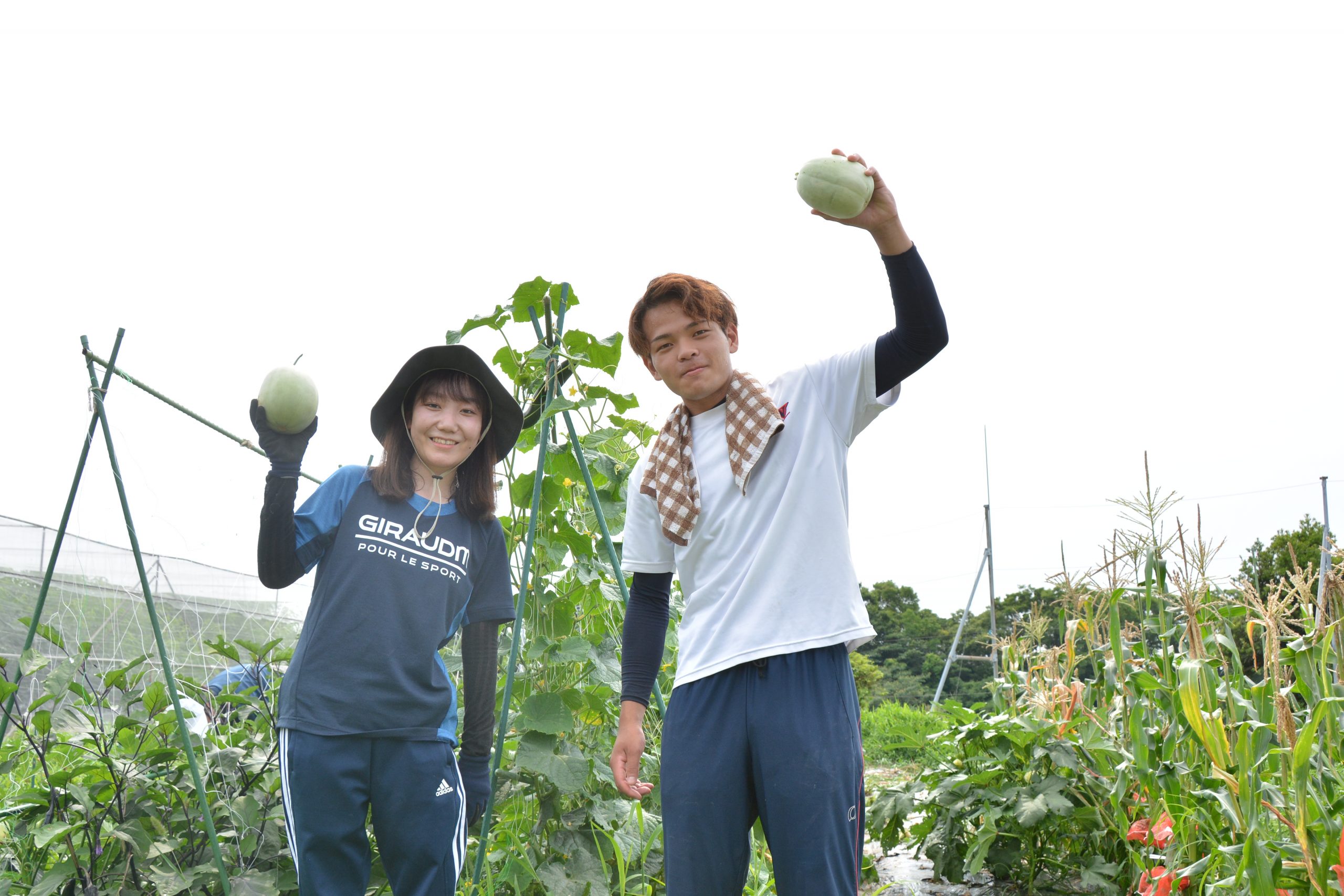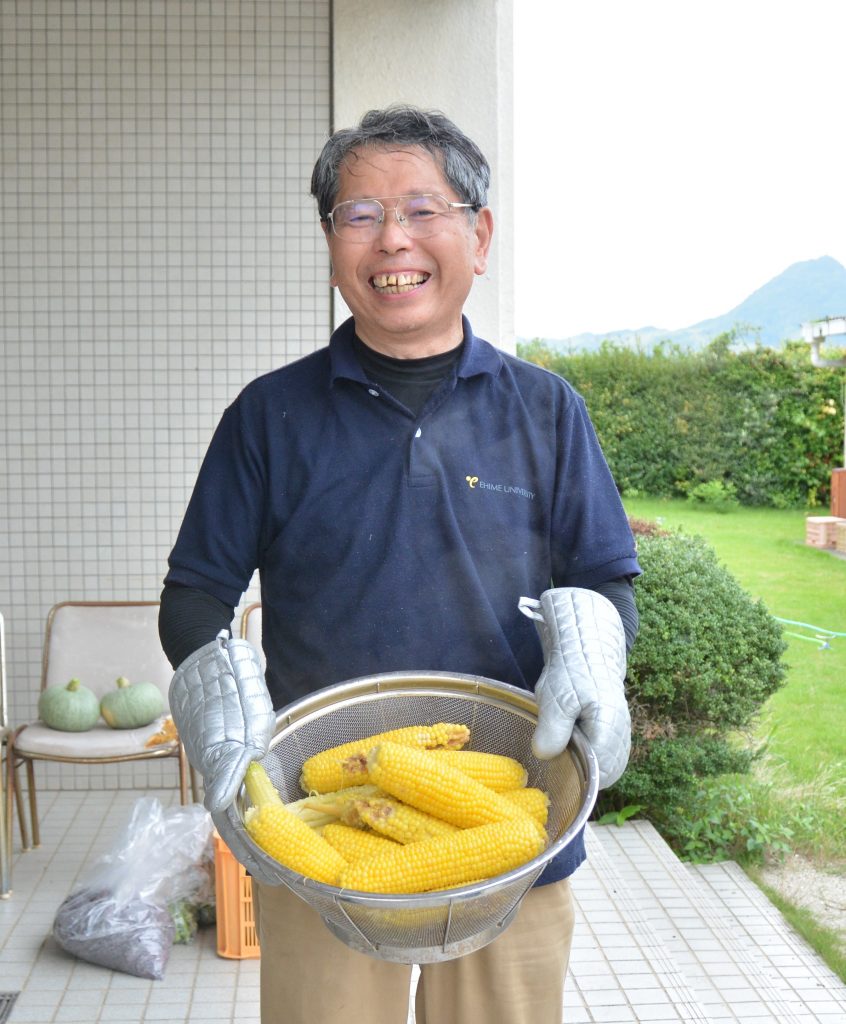The objective of this class is to acquire basic knowledge and skills related to management and research methods of agricultural production, including cultivation methods of crops, fruit trees, vegetables and flowers, livestock fattening, and the use of agricultural machinery. In addition, by conducting research in groups using the field, students are trained to look at agricultural sites from a research standpoint, search for issues on their own, and clarify them.
Lesson Content
The practical training will take place at the farm attached to Ehime University. Students will travel by bus in the morning and spend the whole day at the farm. In the morning, all students will work on the farm together, and in the afternoon, they will be divided into fruit tree, vegetable, and permaculture groups to work on different fields. This practical training allows students to actually experience what they have learned in their university classes, and they are further divided into groups of two or three to research their own ideas.
The permaculture group we interviewed grows crops organically, starting from a cleared field at the beginning of the course and managing about one row per group. When they arrived at the field, each group first conducted a growth survey. Using a measuring tape to measure the height, we checked the condition of the crops. After the survey, work proceeds with harvesting, fertilizing, and watering. In addition to the joy of harvesting, the students are surprised to see weeds that have grown beyond their imagination and to see animal damage, which is a unique experience and learning that only field work can provide.
Students develop countermeasures to deal with diseases, pests, and animal damage without the use of chemical pesticides. Examples of countermeasures include “companion planting,” planting marigolds near vegetables to suppress disease, and growing soybeans and corn together, which are compatible with each other. Other measures included putting up aluminum to prevent aphids.
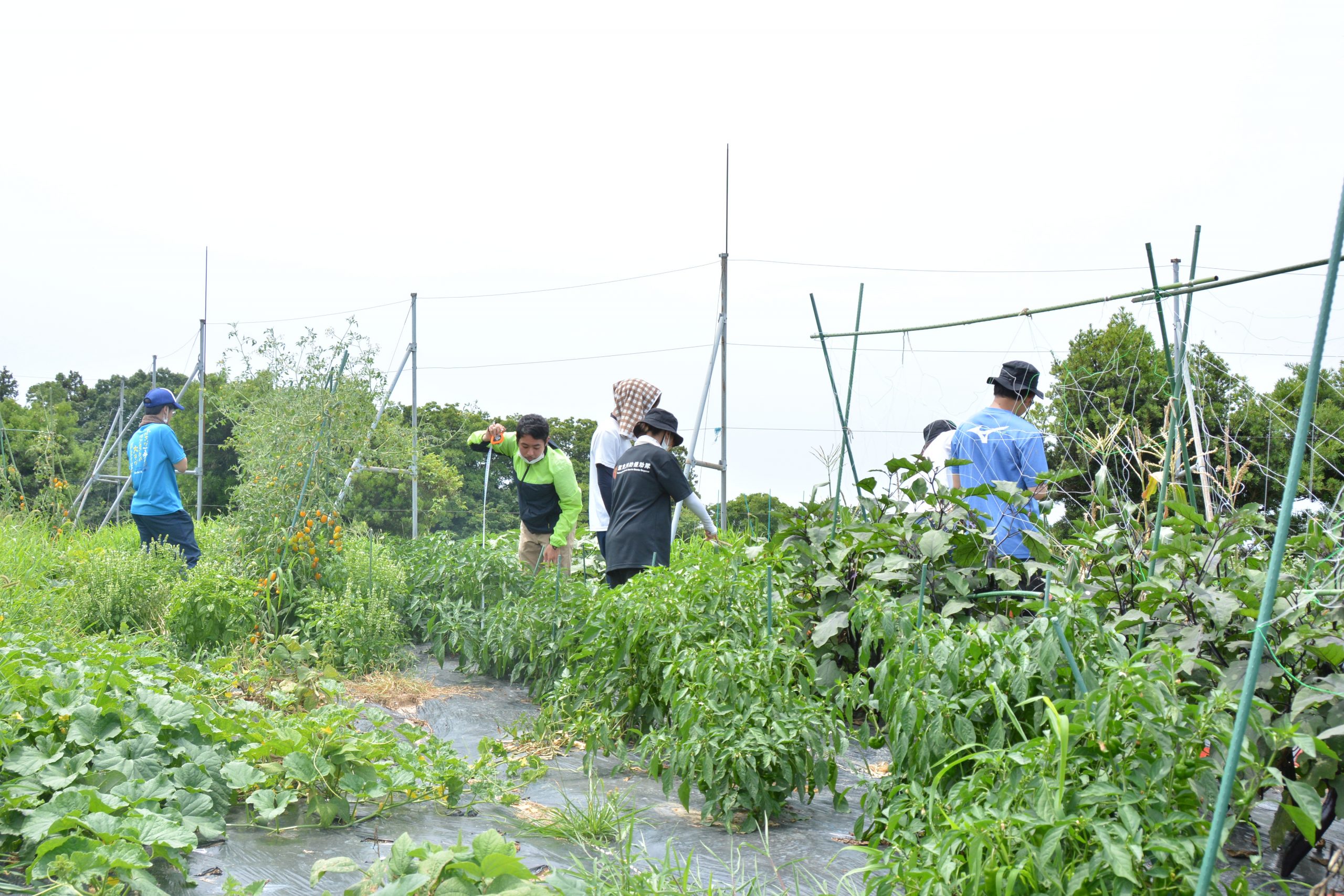
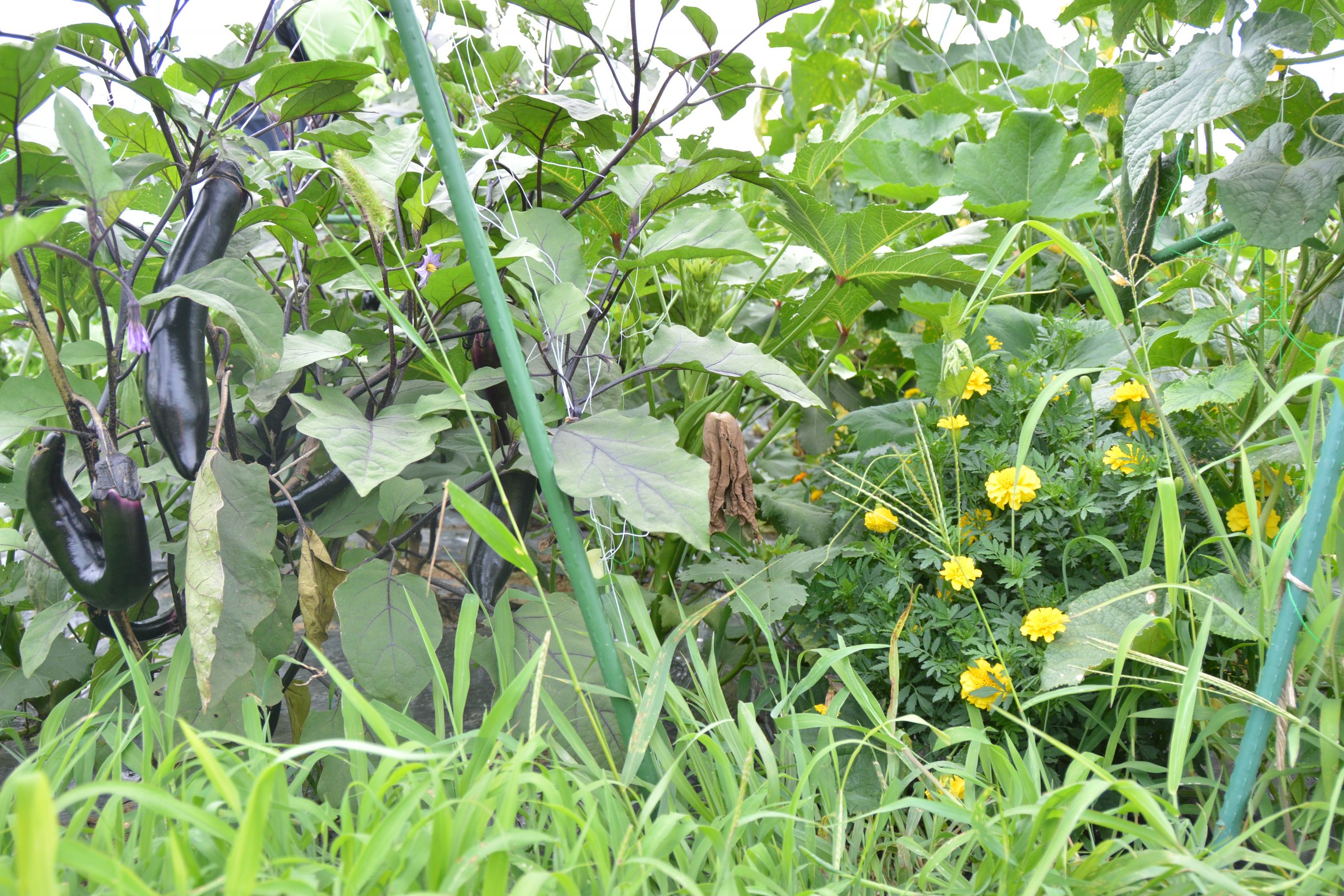
We also cook and eat the harvested crops on the spot as much as possible. Although some of the harvested crops may be misshapen, realizing that they taste good regardless of their appearance is one of the most important aspects of this training.
In this class, each group presents their research at the end of the semester and evaluates each other. One group was collecting data by measuring the size and weight of a large amount of harvested vegetables one by one in preparation for their research presentation. When they saw that they were harvesting too much and could not finish the work in time, students from other groups helped them. Working and conducting research while talking to each other and cooperating with each other also improves communication skills.
Farm training is a class where students learn about agriculture, but it is also a fun class that is like a club activity.
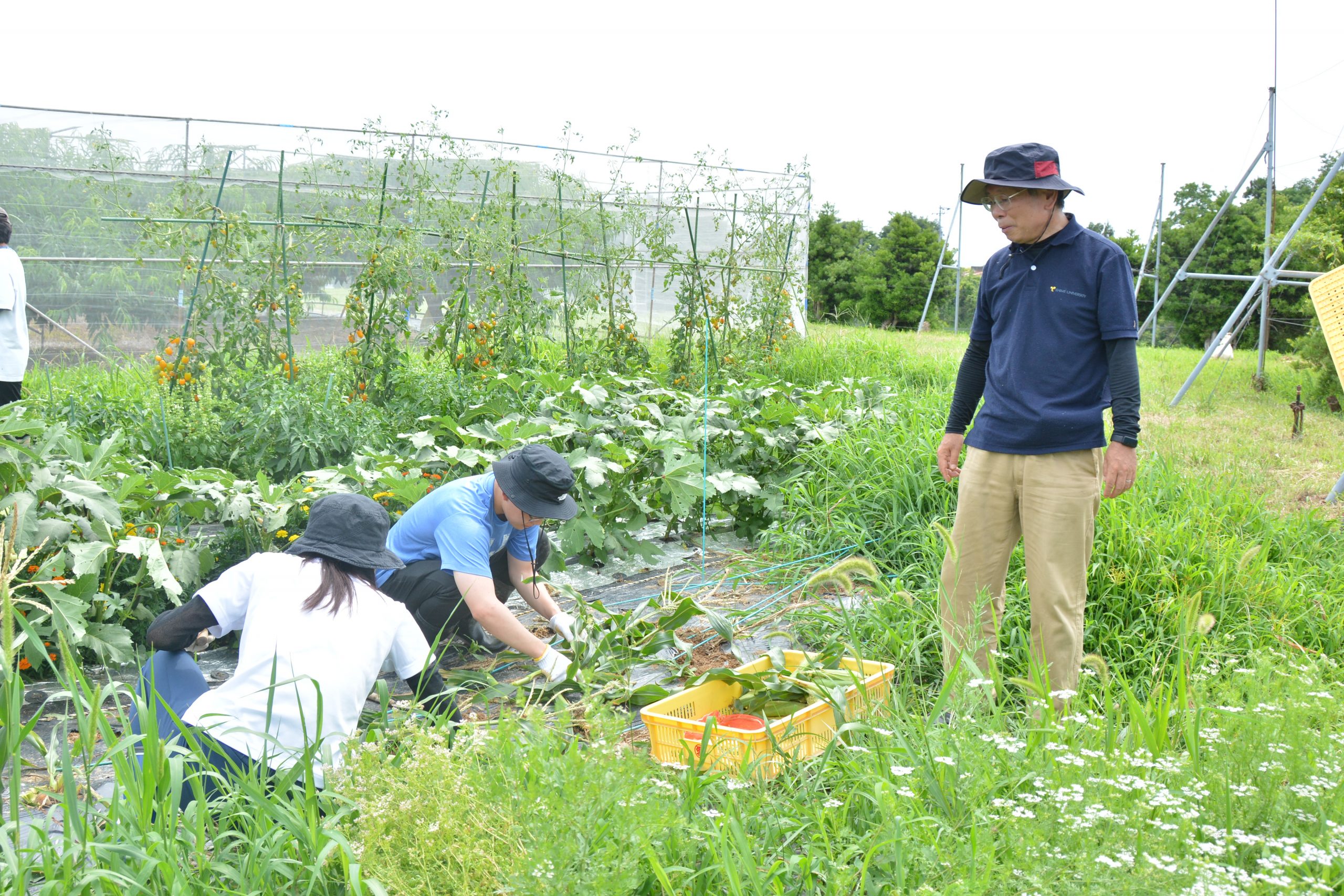
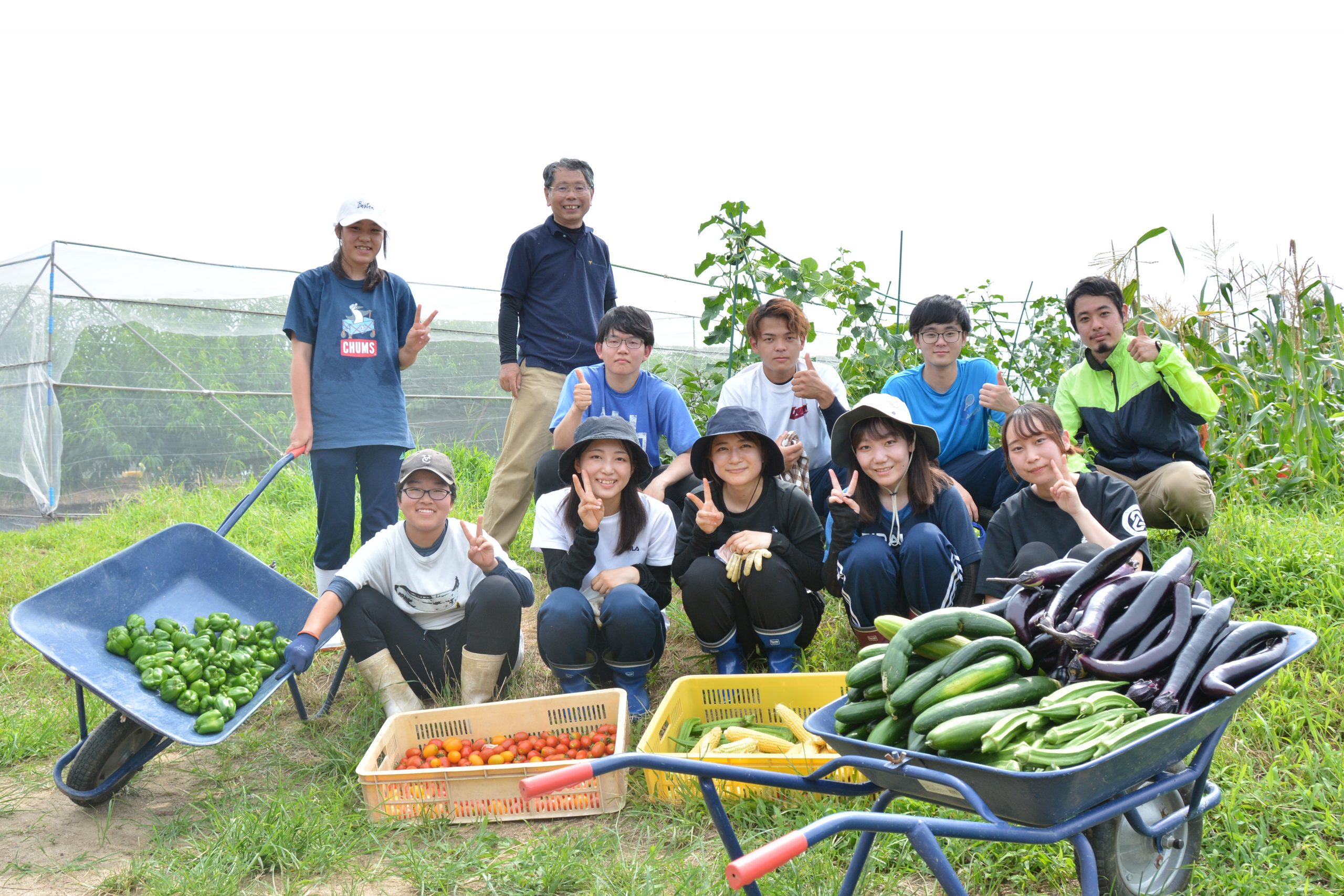
Comments from faculty
Agricultural science is said to be a “practical science. This means that what is learned is not only useful in the actual field, but is also an applied study that can solve problems in the agricultural field through further research. In this practical training, students comprehensively acquire practical knowledge and skills for stable crop production in agricultural ecosystems such as fields, orchards, and rice paddies.
Nature is constantly changing. As crops grow, they develop and differentiate their functions and change their intracellular metabolic physiology. Weeds, insects, small animals, and microorganisms living around crops also create their own ecosystems and affect each other in complex ways. Crops are part of the ecosystem, and “agriculture” can be described as the activity of humans to create a good ecosystem and environment for crops. It is difficult to learn about these complex events in a classroom setting. We humans have five senses – sight, hearing, touch, taste, and smell – that provide us with a great deal of information. By listening to birds and insects on the farm, observing the crops and their surroundings, touching the crops and soil, and eating the harvest to check the taste and aroma, students learn to integrate the knowledge learned in the classroom with the “information obtained through the five senses,” understand the complex agricultural ecosystem, and apply this knowledge to farm work through this practical training.
Most students have never grown crops before. They prepare in advance by anticipating the effects of nutrients, pests, diseases, vermin, weeds, soil moisture, solar radiation, and other factors, and when problems arise, they develop and implement strategies to solve them. Nature will tell us the answer to whether it is correct or not. This helps to improve their skills in preparation, observation, and problem solving. Students also engage in crop cultivation experiments and present the results at the end of the semester, which helps them improve their presentation and communication skills. In addition, through collaborative work, students can enjoy sharing roles, cooperating, and making friends.
Student Comments
Yoshikane Ito, 3rd year student, Department of Food Production, Faculty of Agriculture
In this practical training, students can experience actual farm work in the field and conduct research on a theme of their own design.
Because I was enrolled in the Corona Disaster, most of my first and second year classes were remote, and even though we were in the same department and course, I did not know many people. In such a situation, it was this farm training that allowed me to get involved with and get to know many people. Since we all worked on the farm in the mornings and were divided into three groups for research in the afternoons, we really got to know everyone.
I did research on melons, and when I actually tried growing them, I found that managing them was much more difficult than I had imagined. However, I was happy when I could harvest them and they were very tasty. The harvest was cooked and eaten on the spot or taken home, but I felt a freshness that was different from what I could find at the supermarket. I was very impressed by the teacher’s words, “It’s not only about growing, but also about eating.
